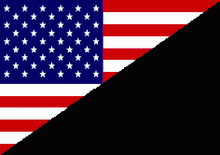There are many reasons why our current monetary system is less than ideal. Click here for two of those reasons. We'll discuss one reform that is currently being developed.
Well, a little economic history might be in order. Once, the United States dollar used to be redeemable for gold. This made sure that a paper note actually had value. Today all national currencies are fiat currencies. Fiat means force; that is, currency has value because it is declared to have value. In the U.S., businesses are required to accept U.S. Federal Reserve Notes "for all debts public and private."
Another way of using currency is being developed by Ryan Fugger and others. Ryan is writing an open source program, ripple, which can be used to keep track of debts between individuals.
Here's how it works. Say you trust Bob, and you extend some credit to Bob. Bob trusts Julie and he extends credit to her. Ripple would then allow you to make a payment to Julie. A payment to Julie would simply be a debt from you to Bob and from Bob to Julie. Julie then could use this credit to make a payment to anyone in your trust network.
In practice there would be some accounts that would extend credit to many people. Say a coffee shop accepts money and extends credit to you, and this coffee shop would accept this credit for coffee. Then this credit would always have value backed by the drinks in the coffee shop. The coffee shop could then extend credit to a restaurant down the street. Then the credit could be accepted at the restaurant and the coffee shop.
If a monetary shift was made in this direction then some of the unattractive qualities of a fiat currency could be mitigated. Also this would minimize credit card fees that contribute to higher prices for all of us.
Subscribe to:
Post Comments (Atom)



3 comments:
I don't really understand this system you're talking about. It sounds like a different way of handling credit accounts that are backed by U.S. currency.
What are they planning to pay these loans back with? Coffee? That's silly.
"Once, the United States dollar used to be redeemable for gold. This made sure that a paper note actually had value. Today all national currencies are fiat currencies. Fiat means force; that is, currency has value because it is declared to have value."
Gold has a value because it is declared to have value. There is nothing intrinsically valuable about gold. It's rare, sure, but that doesn't automatically give something value. A mattress with the face of Jesus smeared out in period-blood is pretty rare too. Gold has value because we say it does.
Delaen
The idea is this. If one place accepts credits on this system for goods, then other businesses could follow suit. Once enough businesses join in, then you would have a local currency.
I use the words "credits" because I want it to envoke a different monetary unit. I imagine that this currency will float.
With the coffee shop example: A cup of coffee could cost $2 or 2/10 credits. The shop owner than sells credits at $9.95 a savings of five cents per credit. Over time the dollar inflates and coffee is now $2.50. The price of coffee in credit could still be 2/10, but a credit will cost around 12.40.
With more than one business involved each one would decide what they wanted to sell credit for and what the cost of the product was.
The shop owner could save transaction fees and you save on your coffee.
The system is not backed by U.S. currency it is backed by trust. A trust to pay back the credit.
It sounds interesting, but have you ever lent money to a friend?
Trust doesn't work very well as a basis for financial transactions.
Post a Comment